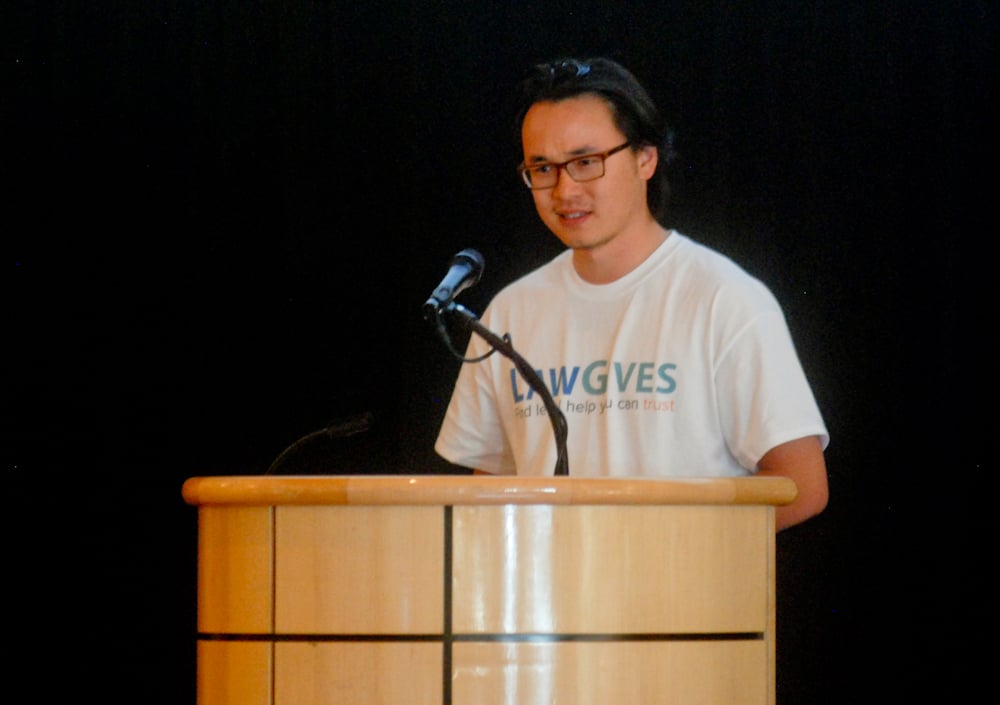StartX, the Stanford-affiliated nonprofit start-up accelerator, hosted its fall campus Demo Day on Saturday, Sept. 28 with returning presenters and members of the latest StartX class.
The event featured start-ups aiming to tackle various problems, from simplifying consumer retail to solving issues of information availability in the private equity market. Here are a few standout companies worth learning more about.
Aviate
Aviate is a smartphone app company focusing on an area traditionally ignored by developers–the home screen of a phone. Aviate’s app allows a customizable and intelligent home screen for phones running the Android operating system.
Founder William Choi ’09 M.S. ’09 explained that the origins of the app came from a desire to have information at your fingertips, information that is relevant to a user.
“Now we have smartphones that literally know everything about you,” Choi said.
“We believe you should use that technology as efficiently as possible,” he added, explaining that a large amount of time was wasted by users on homescreens while accessing their devices to retrieve relevant data.
Aviate’s intelligent interface and screen solve that problem, Choi explained.
“The product we are making is an intelligent homescreen for your Android phone,” he said. “Whether you are at work or at a restaurant or going to bed, we give you the right information at the right time.”
Docmunch
A change from the generally consumer product-focused companies, Docmunch’s product focuses on data acquisition from documents and turning unstructured data into a structured, usable format. Docmunch allows users to create their own data feeds, converting streams of unstructured data into a coherent structure of information.
Founder Michael Feng MS ’12 explained that the problem Docmunch hoped to solve involved difficulties that companies faced when turning data from different sources into information that they could use.
Pixlee
Pixlee, founded in 2012, returned to Demo Day with an updated product and significant traction.
CEO Kyle Wong ’12 began his presentation by emphasizing the positive aspects of the StartX incubator program.
“Seventy-five percent of our revenues came from companies that were direct StartX introductions,” Wong said, adding that that number was indicative of the company’s first year. “Given that StartX doesn’t take any equity,” he added, “it’s a pretty sweet deal.”
Wong explained that Pixlee helped companies market user-generated photos. “The problem with user-generated photos,” he said, “[was that] there was a lot of quantity, but not enough quality.”
“Our mission is to replace that generic, one-size-fits-all with heavy, targeted, authentic, user-generated content,” Wong said.
Verdigris
With the ambitious mission to “put a kink in the CO2 curve”, according to the company’s website, Verdigris developed a software, Building.AI, that allows users to obtain the device-level electricity consumption of buildings in real time. Although the technology itself is not new, the way it is deployed in a building enables greater understanding of household energy consumption.
“It allows us to take information off of the panel of the facility, and lets us develop a full picture of the building,” said Mark Chung, CEO and co-founder of Verdigris who graduated from Stanford with a master’s degree in electrical engineering, in a public presentation.
The company is currently working on developing a sophisticated artificial intelligence to interpret the output of Building.AI.
Contact Nitish Kulkarni at [email protected].
